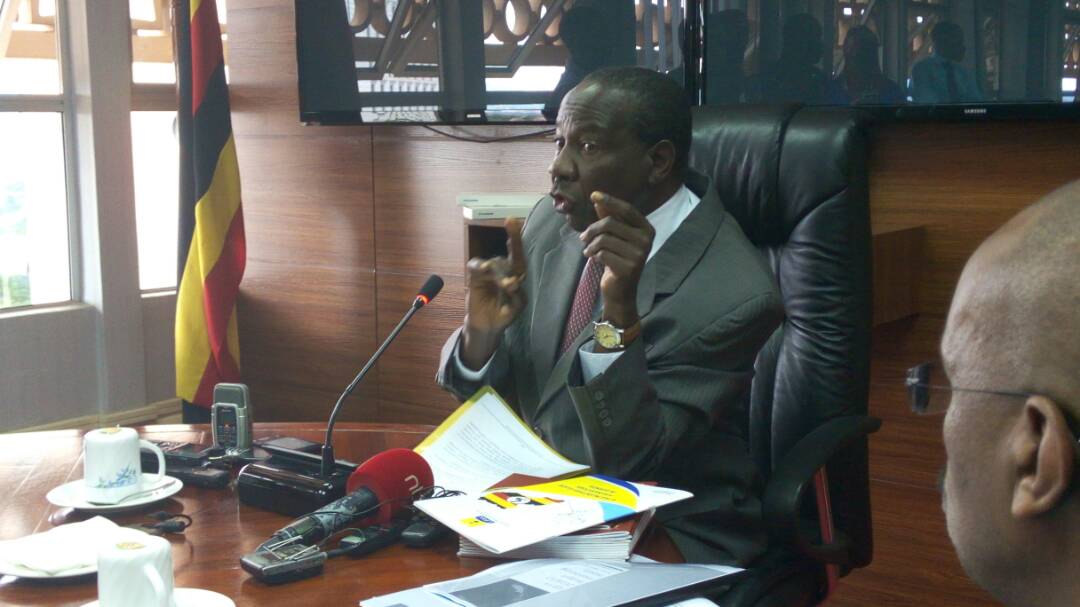The Minister of Finance Matia Kasaija has lashed out at politicians in the opposition for inciting violence during their Age Limit campaign that in turn could frustrate business in the country. He condemned the brawl that broke in Parliament weeks ago and the subsequent ‘illegal’ protests both of which create a risky economic environment and scares investors.
Speaking at a news conference at the Ministry of Finance headquarters on Thursday, Kasaija noted that “money hates noise”, making reference to the tense political climate that the opposition have caused in the wake of the proposed removal of constitutional Presidential age limits.
“This is our country. We can either build it or break it. As servants, we are obliged to serve the interests of the masses who are our masters,” he commented.
The Minister accused opposition MPs of “gagging” those supporting the Age Limit Bill.
“You don’t have to gag someone for you to talk. Those fellows attempted a coup on the Speaker and I condemn them,” he said.
Kasaija said that the opposition is using the ongoing constituency consultations on the Bill to hold rallies that contravene with the law. The law, he said, demands that anyone organizing an event informs the Police of the date and venue.
“You are are inconveniencing people, interrupting traffic, disrupting people’s businesses and security. Who will take responsibility when people are killed at a rally?” Kasaija further stated.
“Don’t indicate to the world that the country is on fire. Money hates noise. Don’t use inflammatory language and go around inciting violence,” the Minister cautioned the opposition.
Police engaged in running battles with masses who were attending an opposition rally in Rukungiri on Wednesday and two people were shot dead. A day before, similar clashes had broken out in Kampala where police fired rounds of teargas as opposition MPs held consultations.
The tense political climate in an economy whose growth was revised to the lowest (3.9%) in the 2016/17 financial year due to drought is likely to affect the foreign exchange rates. The Uganda Shilling has in recent weeks been weakened by import pressures and offshore investors could negatively react to the political jittery.










